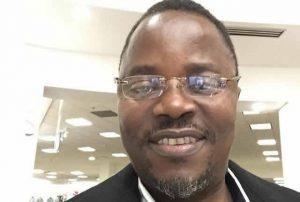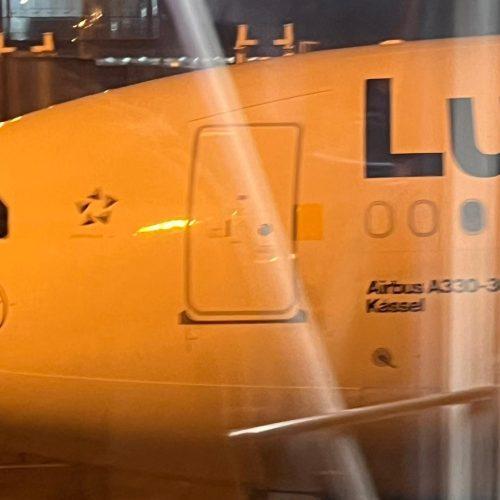By Tunde Rahman
Former President Goodluck Jonathan last weekend opened the debate on the propriety or otherwise of off-season elections. Speaking in an interview with journalists after voting at his Ward 13 Otuoke, Ogbia LGA, Bayelsa State in last Saturday’s off-cycle governorship election, Dr. Jonathan asked the country to put a stop to off-cycle elections, explaining that if the trend continued a time would come when even the presidential election might also become an off-cycle election. His grouse against off-season polls is that they are inconsistent with the global best practices.
“I get worried about the issue of off-season elections, and I will use this unique opportunity to plead with the National Assembly that we need to block off-season elections. It is very odd; it’s not a global best practice. A country can elect its people at different times, like the American election and some countries. They may not elect everybody at the same time but the only time they go on to conduct elections, they elect everybody that is supposed to be elected,” he said.
What the former president seeks is all elections should hold once or twice and there should be fixed periods for elections in Nigeria as is the practice in United States, where we copied our presidential system of government from. In the US, the presidential election takes place every four years, congressional and mid-term elections every two years and a variety of state and local elections hold every year.
The former President, Dr. Jonathan has his point. Off-season election is what it is: it is not in sync with the electoral cycle, distorts the electoral calendar flow and makes elections costlier for a country like Nigeria as opposed to when everything is taken together once or twice.
But achieving the Jonathan proposal seems utopian. It’s a difficult and almost impossible thing to achieve without running foul of the constitution.
The distortion in the electoral cycle came about as a result of adjudication into some governorship election petitions since the democratic rebirth in 1999, which ate into the four-year term of some governors. Eight states fall within the off-cycle elections as a result of judicial judgements on election petitions. At present, the states include Ekiti, Osun, Ondo, Edo, Anambra, Kogi, Bayelsa and Imo. In the case of Osun State for instance, it took former Governor Ogbeni Rauf Aregbesola three solid years before he was able to retrieve his stolen mandate, such that his tenure, which ought to have begun in 2007 eventually started in 2010. Yet, by the constitution, he is entitled to a four-year tenure, and another four years, if re-elected, as was the case in 2014.
Electoral petitions used to go on interminably before. However, the 2010 Electoral Act (as amended) has now fixed the time for the hearing and dispensing with election petitions within 180 days and any ensuing appeal within 60 days. The National Assembly that is at present working on the amendment of the Electoral Act should look into the former president’s suggestion and decide what is possible with respect to off-cycle elections.

In my view, off-cycle elections should ordinarily serve some useful purposes. Rather than injure our electoral system and democracy, they ought to deepen them.
This is what I mean: because the number of seats or constituencies involved in off-cycle elections are much smaller compared to nationwide elections, they normally should give the election stakeholders, particularly the Independent National Electoral Commission, more leeway, indeed the latitude to work towards and engender good elections. They should give the security agencies the room and opportunity to properly police the votes and ensure compliance with the electoral rules and processes.
Let’s examine the wide gaps in the numbers involved, in the February 25, 2023 Presidential Election as compared with Bayelsa, Kogi and Imo off-cycle elections for instance. About 87 million Nigerians collected their PVCs from around 93 million voters registered. They were the eligible persons for the last presidential election (though only 26.71% of them turned out). In the election held in a total of 176, 846 polling stations, 18 political parties participated according to INEC. Also, the police deployed a total of 310, 973 personnel and 1,240 patrol vans for the election.
However, for last Saturday’s off-cycle elections in Bayelsa, Imo and Kogi states, a total of 5.4 million votes were available for grab by the 18 parties who participated in the polls while the elections took place in 10, 470 polling units across the three states. According to INEC National Commissioner and Chairman of its Information and Voter Education Committee, Sam Olumekun, there were 1,056, 862 registered voters in Bayelsa State, 2,419,922 in Imo State and 1,932,654 in Kogi State, making a combined total of 5,409,438 voters for the three states. 16 political parties sponsored candidates in Bayelsa, 17 in Imo and 18 in Kogi. For effect, the electoral commission also claimed it deployed 27 Resident Electoral Commissioners, six national commissioners and many administrative secretaries for the elections.
Now, my point is with that large number of election officials, police officers and other stakeholders deployed for just three gubernatorial seats last Saturday, there is no reason why the elections should not be almost flawless if not excellent.
As I argued earlier, the small number should prepare the ground for the conduct of good elections.
Another important thing about off-cycle elections is that in our situation, they are supposed to provide INEC with the opportunity to test run their arrangements and facilities for the general elections. The July 14 and September 22, 2018 governorship elections in Ekiti and Osun states for instance were supposed to prepare ground for the 2019 presidential polls just as the just-ended off-cycle elections in Bayelsa, Imo, Kogi and the governorship elections in Edo and Anambra scheduled to hold in 2024 and 2025 respectively are supposed to be used by INEC to prepare and particularly to further test its technological systems, the BIVAS and IReV, for the forthcoming 2027 general election.
But has that been the case with off-cycle polls? Writing on the Back Page of Thisday last Tuesday, cerebral columnist and ARISE TV anchor, Dr. Reuben Abati, said: “Every off-cycle election is as bad as the main election, and are in many cases worse. Nigerian politicians and the various stakeholders are obsessed with their own greed, ambition and limitations. Nobody shows any capacity to learn any lessons, making every election the same of the same: the same incredulous pattern of criminality, conflict and capture.”
So, what difference does it make whether the elections are off-cycle or nationwide?
Indeed, the same allegations of vote-buying, writing of results before the election, violence and other malpractices have greeted the just-ended off-cycle elections in Bayelsa, Imo and Kogi. INEC should investigate these anomalies and do the needful so it can at least help in future elections.
Governors Hope Uzodinma and Duoye Diri of Imo and Bayelsa states and All Progressives Congress candidate in Kogi, Ahmed Usman Ododo, have emerged winners of the governorship polls. Uzodinma won in all the 27 Local government areas of the state, polling a total of 540,308 votes to beat his closest challenger, the Peoples Democratic Party candidate Samuel Anyanwu who scored 71, 503 votes. The Bayelsa election across just eight local government areas was a tight one, stretching INEC for two days after the poll before a winner was announced particularly over the alleged manipulated results from Nembe.
Governor Duoye Diri of PDP polled 175, 196 votes to defeat ex-governor Timipre Sylva, the candidate of APC, who came second with 110, 108 votes, while none of the other 14 candidates scored up to 1000 votes.
Kogi off-cycle election was also contentious. There were allegations of writing of results before the election in Kogi Central where Governor Yahaya Bello, the White Lion as he is called, and his handpicked successor, APC candidate Ododo, hail from. INEC initially suspended the election, cancelled results from nine wards in Ogori-Magongo LGA in Kogi Central over electoral malpractices and fixed rerun in those wards for today, November 18. But the commission cancelled the idea of re-run in the affected wards arguing that the total votes from those nine wards would not make any difference in the gaps between the leading candidate Ododo and Social Democratic Party candidate Murtala Ajaka. Ododo was eventually declared the winner of the election, having won the majority of lawful votes.
There are a few remarkable things about the election though.
It is noteworthy that the Bayelsa, Imo and Kogi elections proved bookmakers right. Many analysts had predicted victory for Uzodinma and Diri for various reasons including incumbency factor, even though Diri is of the opposition party at the centre. Ajaka performed brilliantly in the election but the opposition in the state is too fragmented to make a major impact to upstage the APC.
Another thing about the polls is that they were generally peaceful and devoid of much violence which is a credit to President Bola Tinubu and the police.
There was also a level-playing field. President Tinubu did not use his exalted position to oppress candidates of the other parties. At every turn, he would tell all those involved in the election to give everyone and every party equal chance.
This has been widely acknowledged and applauded. Indeed, the President deserves commendation on the off-cycle polls. We should take these gains into the future elections.
Rahman, former Editor of Thisday on Sunday is a Senior Presidential Aide.






















